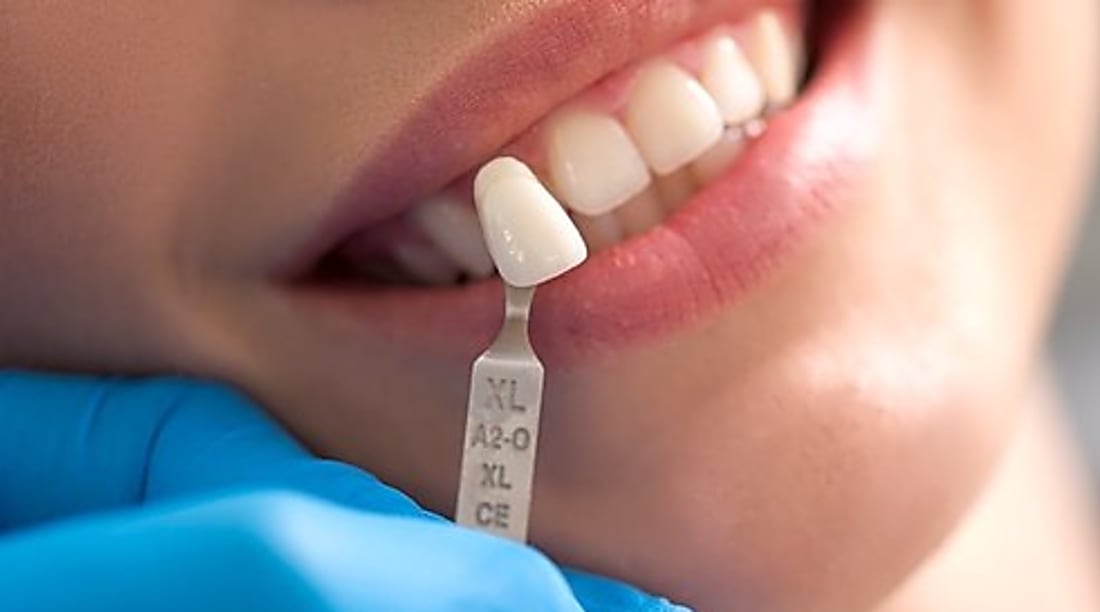Dental Veneers Explained: A Guide to Achieving a Brighter, More Confident Smile
A confident smile can often make a significant difference in both our personal and professional lives. For those exploring ways to enhance their smile's appearance, dental veneers have become an increasingly popular cosmetic solution. This guide offers a clear, straightforward overview of what modern veneers are, how the process typically works, and what key factors to consider when exploring this option.

Dental veneers represent one of the most effective cosmetic dentistry treatments available today, offering a pathway to dramatically improve your smile’s appearance. These wafer-thin coverings are crafted to fit precisely over your natural teeth, creating a uniform, bright appearance that can boost confidence and enhance your overall facial aesthetics.
What Exactly Are Dental Veneers?
Dental veneers are ultra-thin shells, typically measuring between 0.5 to 0.7 millimetres thick, made from either porcelain or composite resin materials. These custom-fabricated coverings are designed to bond permanently to the front surface of your teeth, effectively masking imperfections such as stains, chips, gaps, or slight misalignments. Porcelain veneers are considered the premium option due to their durability, stain resistance, and ability to mimic the natural translucency of tooth enamel. Composite veneers, while more affordable, offer a quicker application process but may require more frequent maintenance.
The Step-by-Step Veneer Process Explained
The veneer placement process typically requires two to three dental appointments spread over several weeks. During your initial consultation, your dentist will evaluate your oral health, discuss your aesthetic goals, and determine whether veneers are suitable for your specific needs. The preparation phase involves removing a small amount of enamel from the tooth surface, usually about half a millimetre, to accommodate the veneer thickness. Impressions are then taken to create custom veneers that match your desired shape, size, and colour. Temporary veneers may be placed while your permanent ones are being crafted in a dental laboratory. The final appointment involves bonding the custom veneers to your teeth using a strong dental adhesive and curing them with a special light.
Key Benefits of Modern Veneer Technology
Modern veneer technology offers numerous advantages that make this treatment highly sought after. The primary benefit is the dramatic aesthetic improvement, instantly transforming discoloured, worn, or irregularly shaped teeth into a uniform, bright smile. Veneers are highly stain-resistant, particularly porcelain varieties, meaning your new smile will maintain its brilliance for years with proper care. The treatment is minimally invasive compared to crowns, preserving more of your natural tooth structure. Additionally, veneers can address multiple cosmetic concerns simultaneously, including closing gaps, lengthening short teeth, and creating better symmetry. The results are immediate and long-lasting, with porcelain veneers typically lasting 10-15 years with proper maintenance.
Are You a Suitable Candidate for Veneers?
Ideal candidates for dental veneers have good overall oral health, sufficient tooth enamel, and realistic expectations about the treatment outcomes. You should have healthy gums free from periodontal disease and practice good oral hygiene habits. Veneers work exceptionally well for addressing cosmetic concerns such as permanent staining that doesn’t respond to whitening treatments, minor chips or cracks, small gaps between teeth, or slightly misaligned teeth. However, veneers may not be suitable if you have severe tooth decay, significant structural damage, or habits like teeth grinding without using a protective night guard. Your dentist will conduct a thorough examination to determine your candidacy and may recommend alternative treatments if veneers aren’t appropriate for your situation.
| Treatment Type | Provider Examples | Cost Estimation (UK) |
|---|---|---|
| Porcelain Veneers | Bupa Dental, Spire Healthcare | £400-£1,200 per tooth |
| Composite Veneers | NHS (limited cases), Private practices | £150-£400 per tooth |
| Full Smile Makeover | Harley Street practices, Regional clinics | £3,000-£15,000 |
Prices, rates, or cost estimates mentioned in this article are based on the latest available information but may change over time. Independent research is advised before making financial decisions.
The investment in dental veneers varies significantly based on the material chosen, the complexity of your case, and your location within the UK. While the initial cost may seem substantial, many patients find the long-term benefits and confidence boost justify the expense. Most dental practices offer financing options or payment plans to make the treatment more accessible.
Maintaining your veneers requires the same oral hygiene practices as natural teeth, including regular brushing, flossing, and dental check-ups. Avoiding habits that could damage your veneers, such as biting hard objects or using your teeth as tools, will help ensure their longevity. With proper care, your investment in dental veneers can provide you with a beautiful, confident smile for many years to come.
This article is for informational purposes only and should not be considered medical advice. Please consult a qualified healthcare professional for personalized guidance and treatment.




